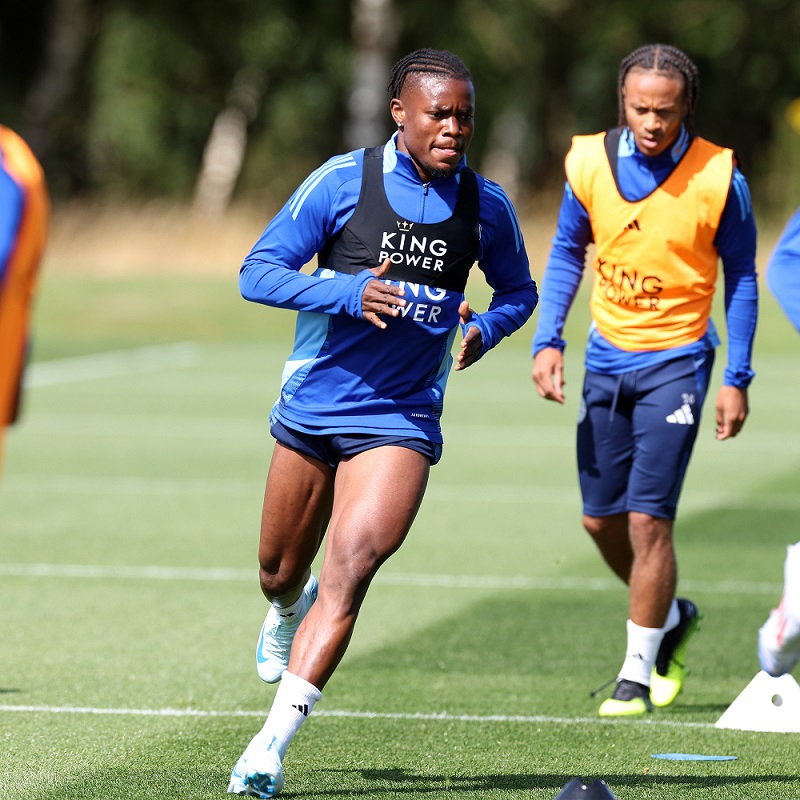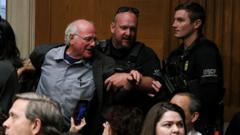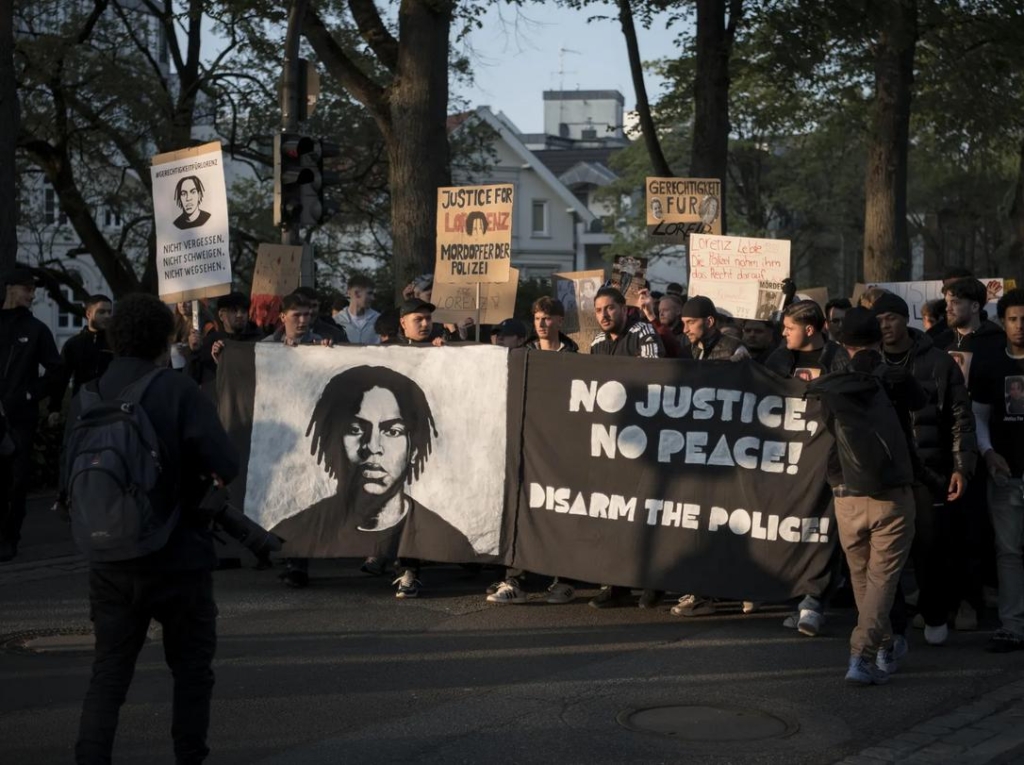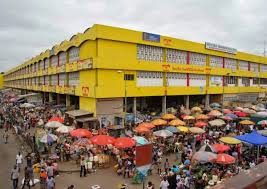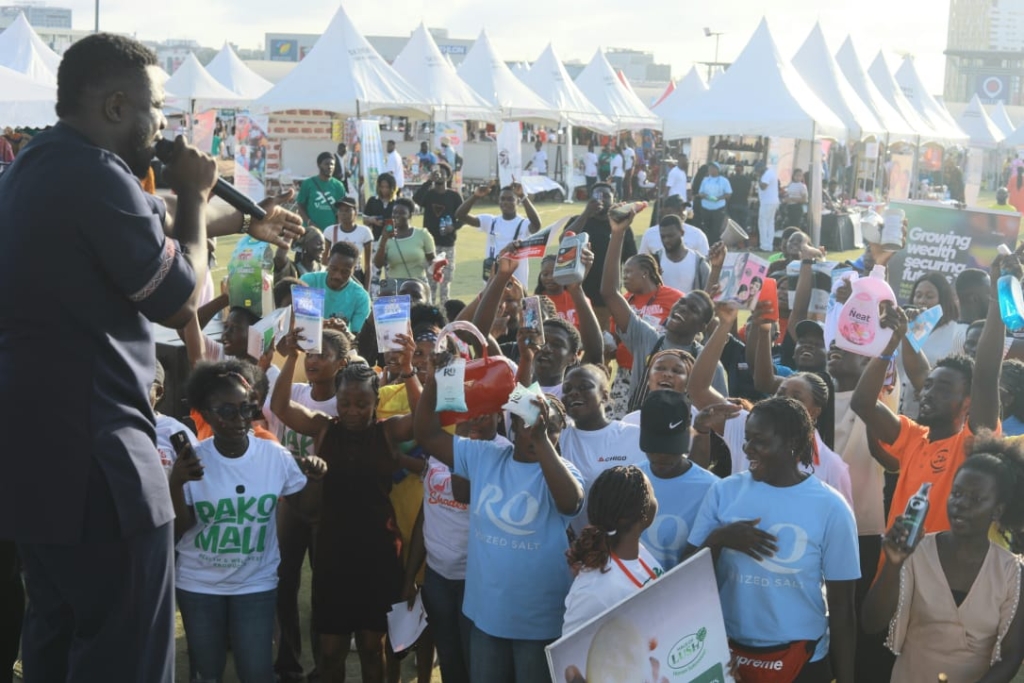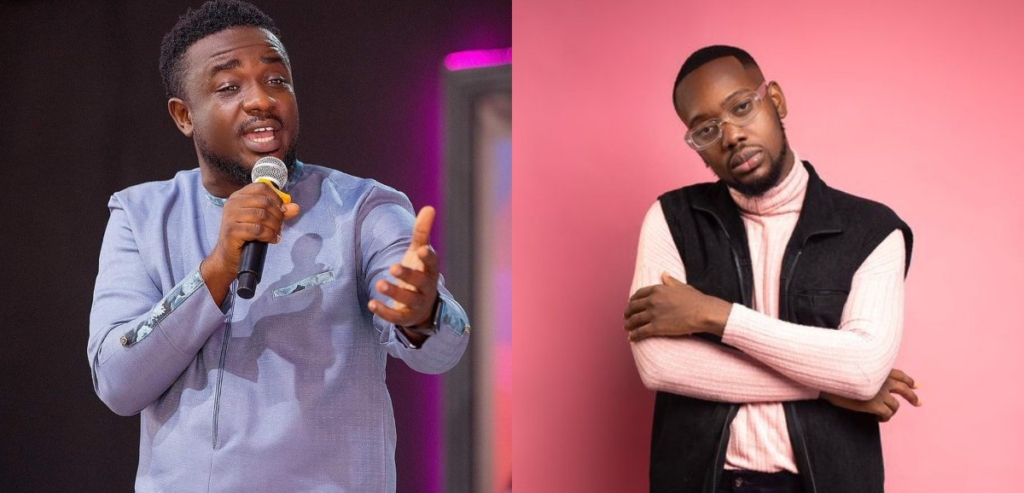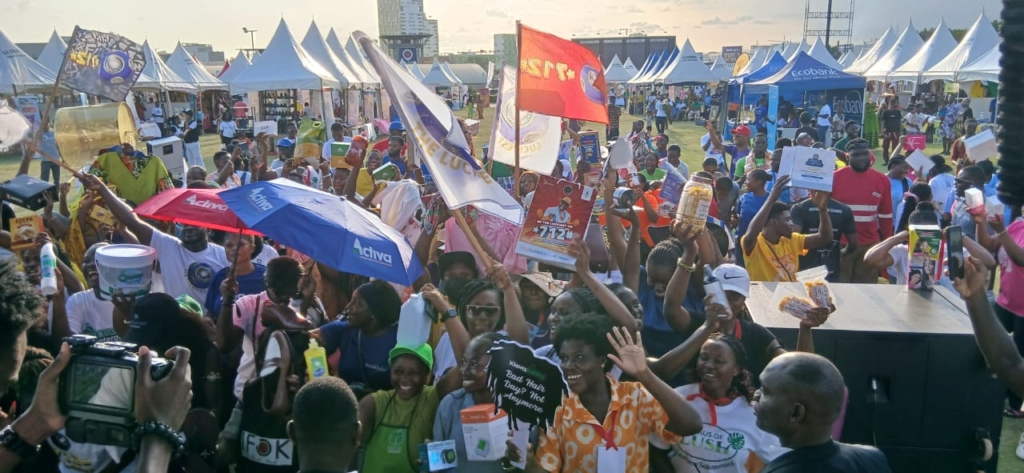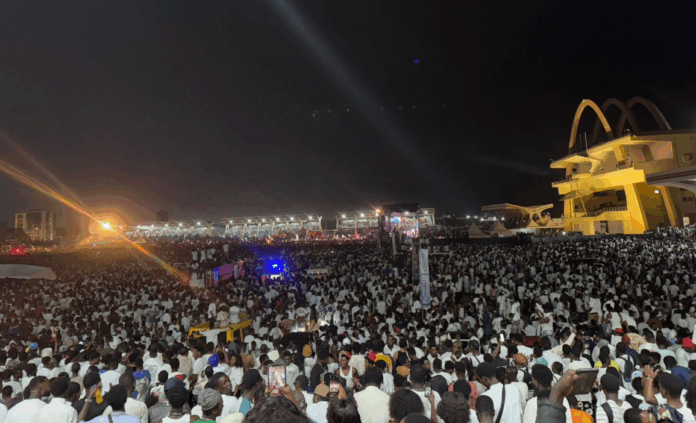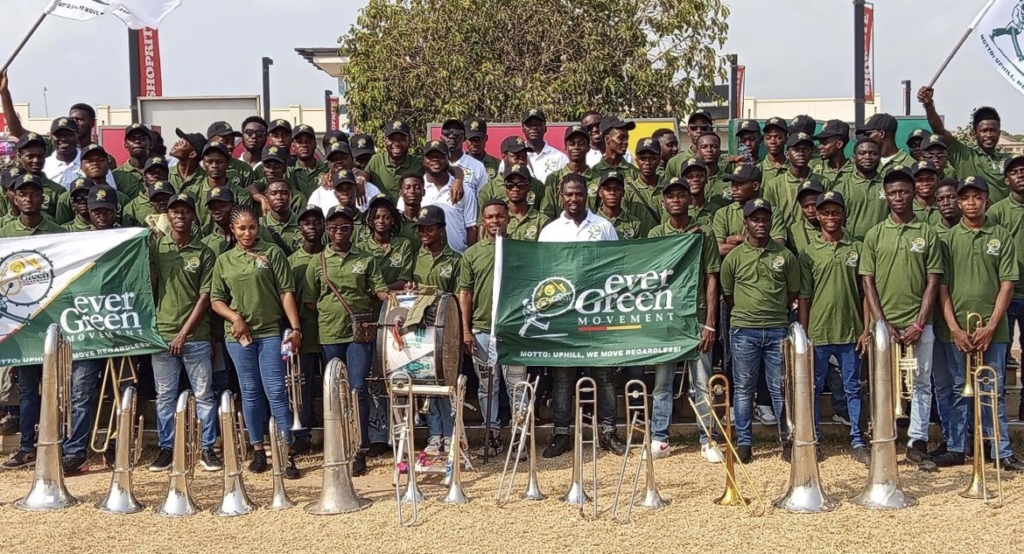Friends, family, and thousands across Germany demand answers after a young Black man is killed by police in Oldenburg.
Oldenburg, Germany – They came from across the country — Göttingen, Kassel, Leipzig, Hamburg, Essen — 12 close friends packed into three cars. Clovis, Hindo, Benjamin, Chris, Jonathan.
Some introduced themselves and wanted to speak. Others remained silent, preferring to grieve in their own way.
They were not alone. Like them, thousands gathered in Oldenburg. Most had never met Lorenz A., but came to stand in solidarity. His friends had known him for years — back when he lived in Göttingen, played basketball for the BG Göttingen U-19 team, and showed promise as a powerful, agile forward.
The club had seen talent in him and brought him into their ranks. Lorenz fit in instantly. They saw each other nearly every day — after school, or huddled under outdoor heaters at a local bar, sipping Fanta and iced tea.
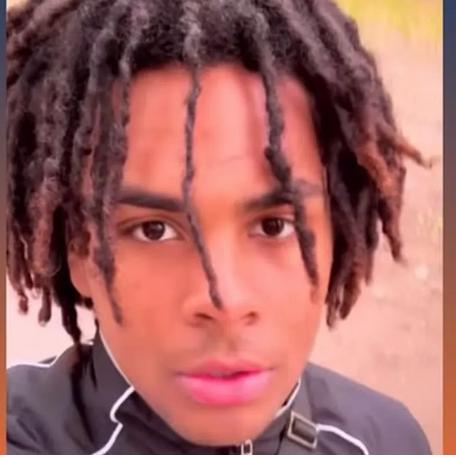
“Lorenz fit into our lives like the missing piece of a puzzle,” Clovis said quietly.
Now, Lorenz is gone.
A Deadly Easter Weekend
In the early hours of Easter Sunday, 21-year-old Lorenz A. was shot and killed by a 27-year-old police officer in Oldenburg. He was struck by at least three bullets — in the torso, the hip, and the head — all from behind. He died in the hospital from his injuries.
In two weeks, Lorenz would have turned 22. He wore his hair in short dreadlocks. He was Black. He was from Oldenburg.
The full picture of what happened that night remains unclear. Prosecutors are still reviewing surveillance footage, audio recordings, mobile phone data, police radio logs, and witness statements. Crucially, the bodycams worn by the officers were turned off.
Here’s what’s known so far: Lorenz tried to enter Pablo’s, a nightclub in Oldenburg’s old town. He was denied entry — staff later claimed his outfit didn’t match the club’s dress code. A dispute followed. Lorenz reportedly sprayed mace at the bouncers and fled. Prosecutors say he threatened pursuers with a knife.
In a nearby alley, Lorenz encountered the police for the first time that night. He kept running. More officers had arrived by then. As Lorenz moved toward and past them, he allegedly sprayed more mace. One officer fired five shots. Three hit Lorenz from behind. One bullet grazed his thigh.
Lorenz died shortly after in the hospital.
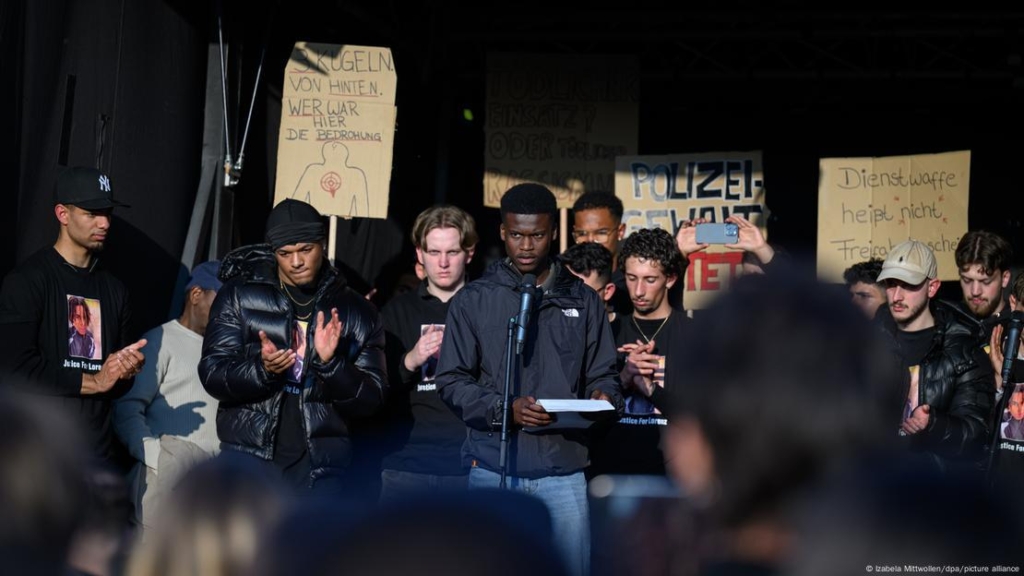
Authorities have yet to determine whether the officer warned Lorenz before shooting, whether he had been sprayed himself, or exactly from which angle he fired. What is clear is that, according to the prosecutor, there is currently no evidence that Lorenz posed a direct threat to the officer at the moment he was shot.
The officer has been temporarily suspended. An investigation for manslaughter is underway and will be led by a neighbouring police department to ensure neutrality — a common practice in such cases.
Outrage and Grief: A Movement Begins
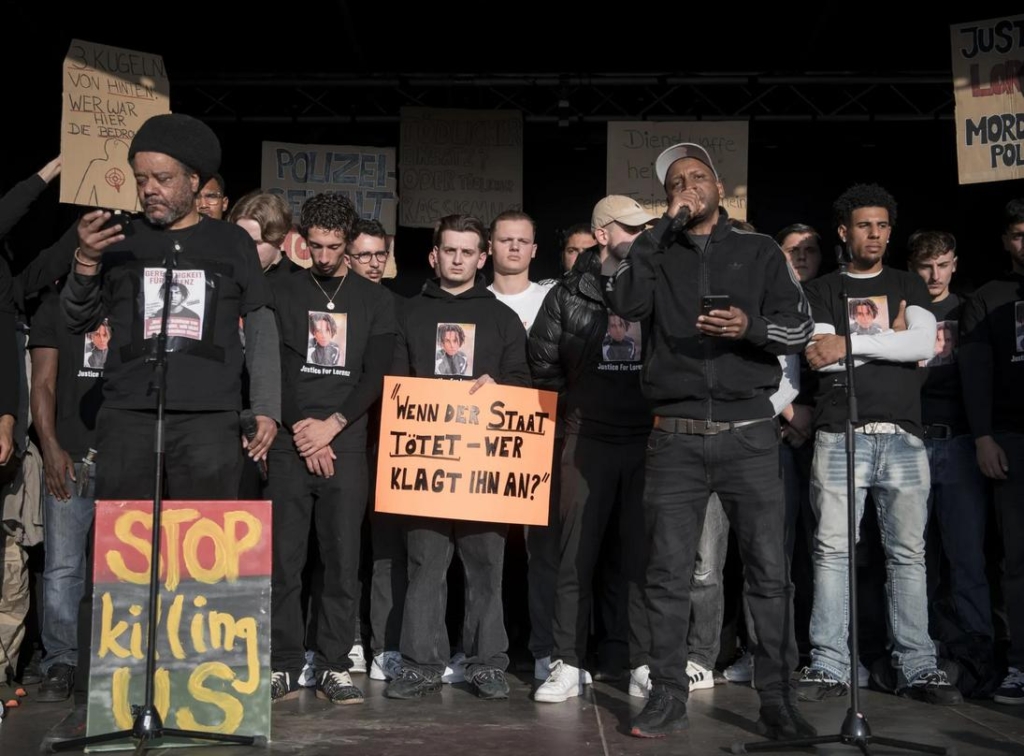
In the aftermath, Lorenz’s family and friends launched a movement: “Justice for Lorenz.” They called for demonstrations. On Friday, nearly 10,000 people marched in Oldenburg. Among them were his childhood friends — Clovis, Benjamin, Hindo, Chris — there to pay their respects.
“We needed to be here,” Clovis said. “To show that people knew him, that he mattered, that he belonged.”
At 6 PM, the protest began. One by one, Lorenz’s friends and relatives took the stage, sharing stories of a young man who was sensitive, strong, and full of heart. A family friend spoke on behalf of Lorenz’s mother, who was too devastated to attend.
“She can’t eat. She can’t sleep. She can’t drink. Everything was taken from her,” the speaker said, her voice breaking as she thanked the friends who cleaned Lorenz’s blood from the cobblestones the morning after.
Ihsan, visibly exhausted and teary-eyed, added, “Lorenz wasn’t a mistake. He wasn’t a threat. I don’t want him to be forgotten.”
Names of other Black people who have died in police encounters in Germany were read aloud. Families of Mouhamed Dramé and Oury Jalloh reminded the crowd that these tragedies form a pattern — one of systemic and structural racism.
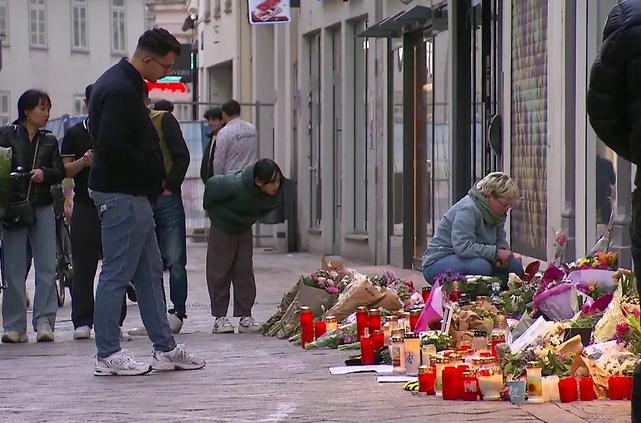
A Death That Demands Answers
The events of that Easter night might tell the story of a tragic escalation — but many are left asking: Why did the officer shoot? And why five times?
While prosecutors, judges, and witnesses will seek to answer that, for Lorenz’s loved ones, the final outcome may change little. They’ve lost a teammate. A friend. A son.
And many believe this wasn’t just a tragic mistake. For them, Lorenz didn’t die simply because a police officer pulled the trigger — in fear or misjudgment. He died, they say, because he was Black.
“He Was One of Us”
Back at the protest, Lorenz’s Göttingen crew stood close together, dressed in black. They passed around a lychee ice vape, holding homemade signs: Black Lives Matter, Rest in Peace Lorenz, Justice for Lorenz.
They joked, nudged each other — trying to hold back the weight of grief.
When the march began, they pulled out photos of Lorenz on their phones.
“His laugh was contagious,” Hindo said.
“He had so much potential,” said Chris.
“I have so many funny memories with him,” Clovis added.
“He pushed me to be my best,” said Jonathan.
It was the first time in three years this group had been together again. Most of them are Black — just like Lorenz.
To them, one thing is painfully clear: Lorenz A. died because he was Black.
DISCLAIMER: The Views, Comments, Opinions, Contributions and Statements made by Readers and Contributors on this platform do not necessarily represent the views or policy of Multimedia Group Limited.

